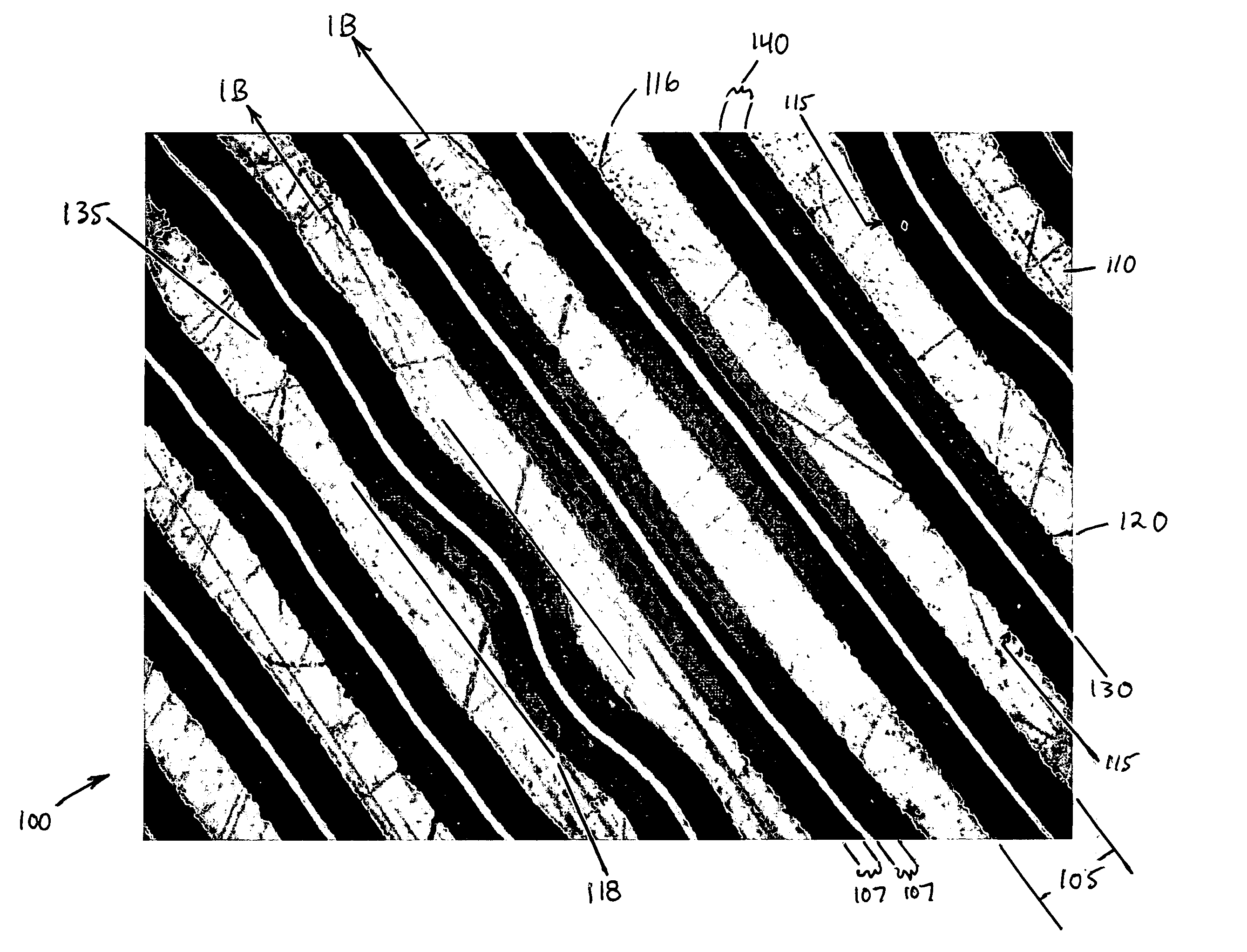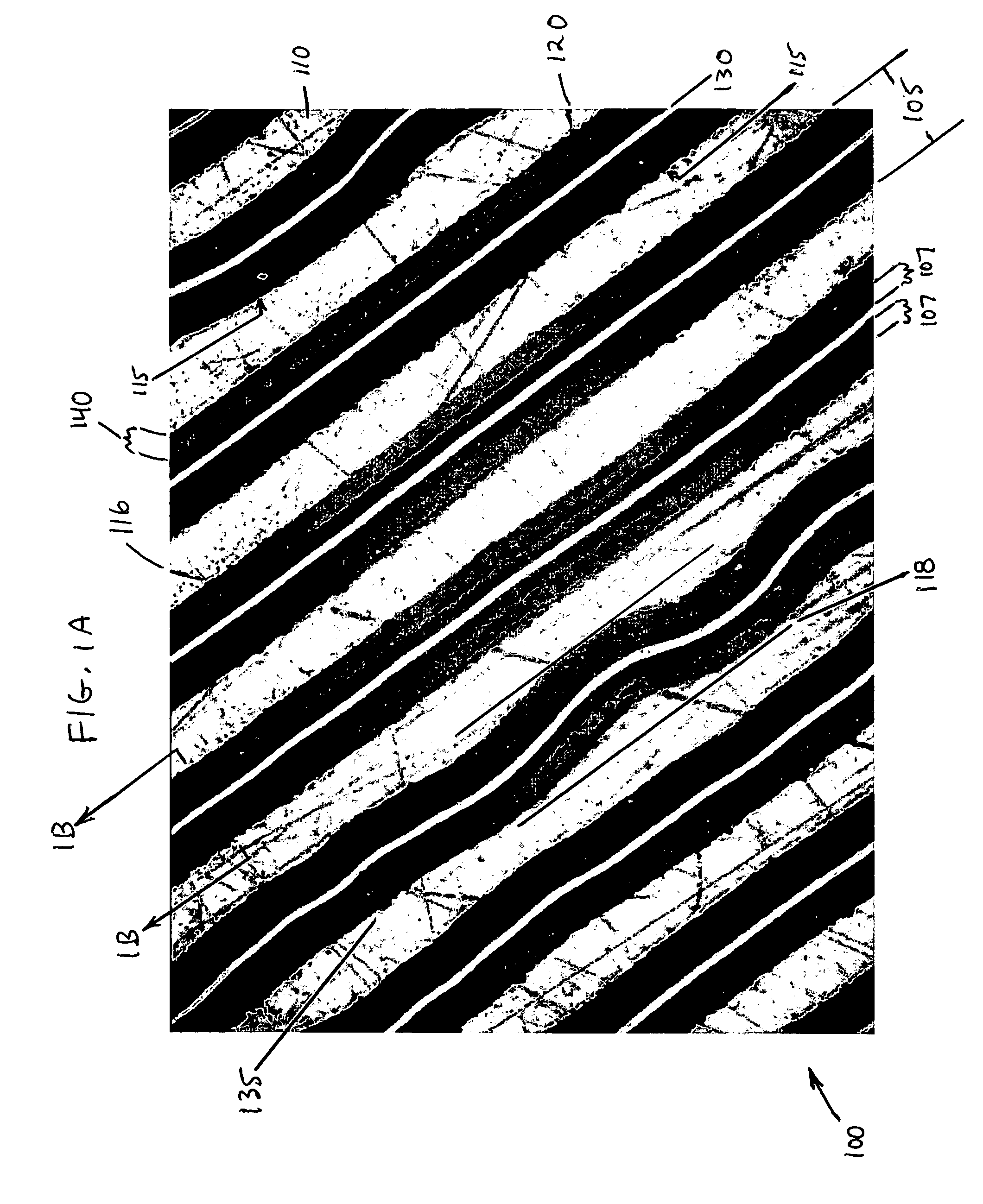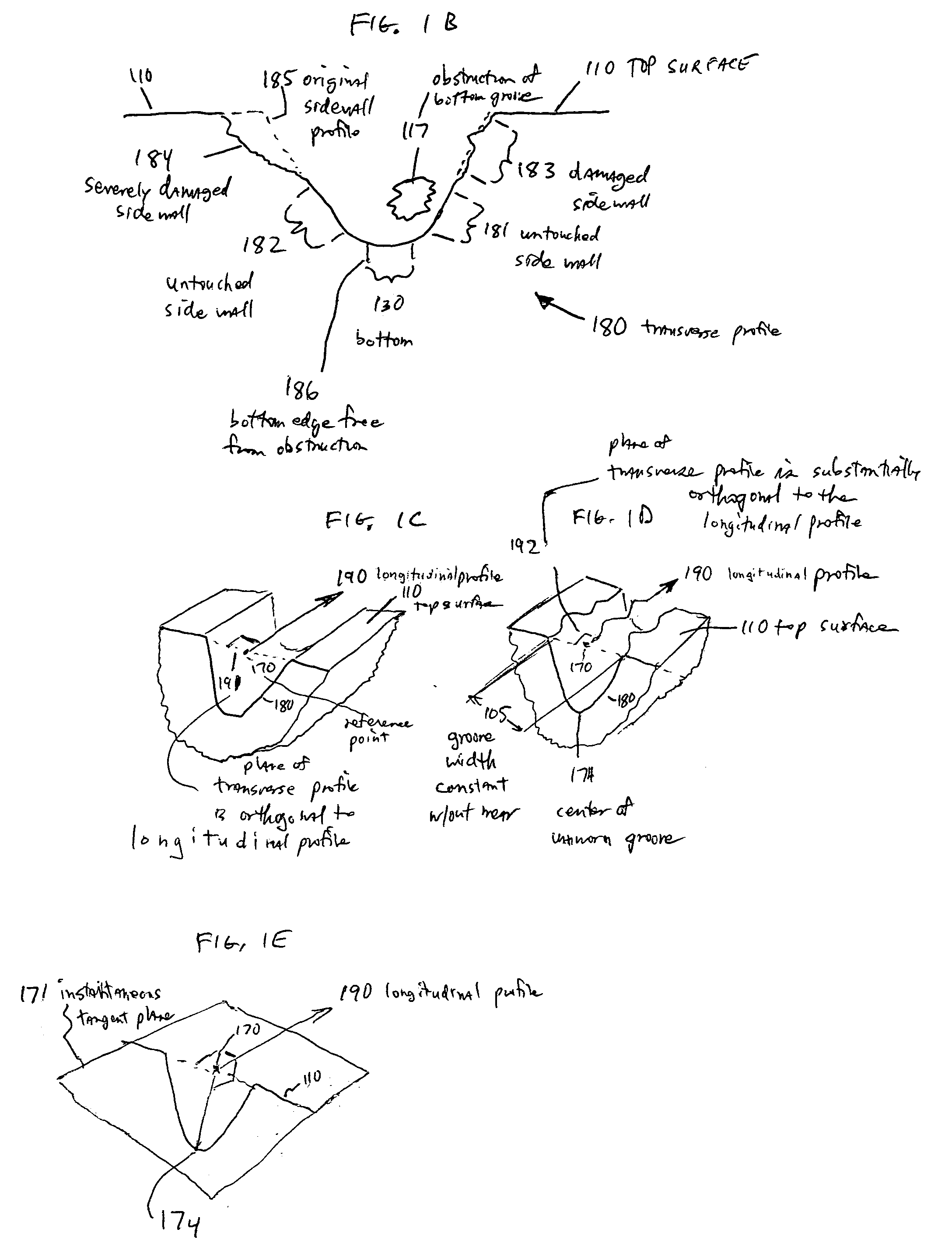Metrological digital audio reconstruction
a digital audio and audio reconstruction technology, applied in the field of recorded analog signals, can solve the problems of only suited archival methods, noise addition and resolution degradation, and achieve the effect of reducing noise in the audio reconstruction
- Summary
- Abstract
- Description
- Claims
- Application Information
AI Technical Summary
Benefits of technology
Problems solved by technology
Method used
Image
Examples
Embodiment Construction
1. Definitions
“Profile” means a variation of the elevation of a feature versus position.
“Transverse profile” means the cross-section of a mechanical groove taken in the shorted direction, orthogonal to the instantaneous average longitudinal path of the mechanical groove.
“Longitudinal profile” means the elevation of the path of a mechanical groove as it follows the surface of a medium. The mean longitudinal profile path at every point is orthogonal to a corresponding transverse profile.
“Mechanical groove” means any spatially modulated feature covering a portion of a surface, and typically having at least a portion of a transverse profile approaching a constant profile.
“Tangent” means a line coplanar with a tangent plane constructed so as to pass through a point on the surface of a medium defined by a mathematical function.
“Surface” means a bulk surface of a medium defined by a mathematical function averaged over a spatial distance of a plurality of mechanical grooves.
“Positiv...
PUM
| Property | Measurement | Unit |
|---|---|---|
| size | aaaaa | aaaaa |
| size | aaaaa | aaaaa |
| frequency | aaaaa | aaaaa |
Abstract
Description
Claims
Application Information
 Login to View More
Login to View More - R&D
- Intellectual Property
- Life Sciences
- Materials
- Tech Scout
- Unparalleled Data Quality
- Higher Quality Content
- 60% Fewer Hallucinations
Browse by: Latest US Patents, China's latest patents, Technical Efficacy Thesaurus, Application Domain, Technology Topic, Popular Technical Reports.
© 2025 PatSnap. All rights reserved.Legal|Privacy policy|Modern Slavery Act Transparency Statement|Sitemap|About US| Contact US: help@patsnap.com



